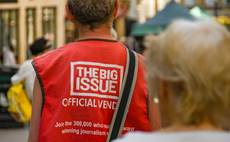Blockchain is being trialled to ensure that non-profit organisations are getting the best deal
A network of global charities has begun using blockchain to provide transparency to donations, ensuring that they are used appropriately. Organisations including Oxfam, Save the Children and Chr...
To continue reading this article...
Join Computing
- Unlimited access to real-time news, analysis and opinion from the technology industry
- Receive important and breaking news in our daily newsletter
- Be the first to hear about our events and awards programmes
- Join live member only interviews with IT leaders at the ‘IT Lounge’; your chance to ask your burning tech questions and have them answered
- Access to the Computing Delta hub providing market intelligence and research
- Receive our members-only newsletter with exclusive opinion pieces from senior IT Leaders






















